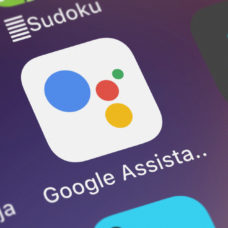Facebook‘s AI has also taken the challenge of playing the card game, Hanabi. While DeepMind created the first Hanabi-playing AI earlier this year, Facebook’s work is still considered a big deal.
AI models developed today have relied mostly on reinforcement techniques to defeat human gamers. For example, DeepMind‘s AI game player defeated human opponents in competitive games like AlphaGo, Dota II, and StarCraft II.
Cooperative games, on the other hand, are slightly different.
They usually involve putting yourself in the shoes of other players and understanding why they take specific actions. As a result, cooperative games provide an insight into how humans think.
Hanabi – the Japanese word for fireworks – is an excellent example of a cooperative game.
Unlike most other games, Hanabi is not about one opponent beating another. Instead, it’s a cooperative card game where competing teams help each other out.
It’s no wonder that companies use it as a team-building exercise. However, the game seems to have attracted the attention of AI-researchers, and here’s why.
Using Hanabi to Teach an AI the Theory of the Mind
In the game of Hanabi, a team of two to five players receives random cards with different numbers and colors that represent a point.
The goal is simple. Each team must group the cards by color, and in the numerical order on the table. The problem is that players cannot see their cards while their teammates can.
That means a teammate must give clues or hints to let a player know whether to keep or discard a card. But, that player should also be able to deduce what the clue means.
That’s where the theory of the mind comes in.
“Theory of mind is this idea of understanding the beliefs and intentions of other agents or other players or humans,” says a Facebook AI researcher. “It’s something that humans developed from a very early age. But one AIs have struggled with for a very long time.”
Now, imagine Hanabi bots that can understand the teammates’ hints based on the limited information in their cards. That’s what Facebook’s AI researchers developed.
Thanks to a combination of reinforcement learning and multi-search technique, the bots could play Hanabi on their own and with each other. Here’s why it’s a big deal
Facebook intends to develop a cooperative AI, and the Hanabi bot is the first step.
It could lead to AI agents that can reason better about cooperative interactions with humans. Also, chatbots will be able to understand why the people they’re interacting with made a particular statement.
Facebook AI researcher, Adam Lerer told Engadget:
“..Chatbots that can reason better about why people say the things they do without having to enumerate every detail of what they’re asking for is a very straightforward application of this type of search technique.”
Its application extends beyond human-machine interaction to autonomous vehicles.
By studying the cars ahead, self-driving vehicles will be able to understand that they’re slowing or stopping due to pedestrian crossing. The autonomous vehicle won’t need to see the pedestrians itself to conclude.



















Comments (0)
Most Recent